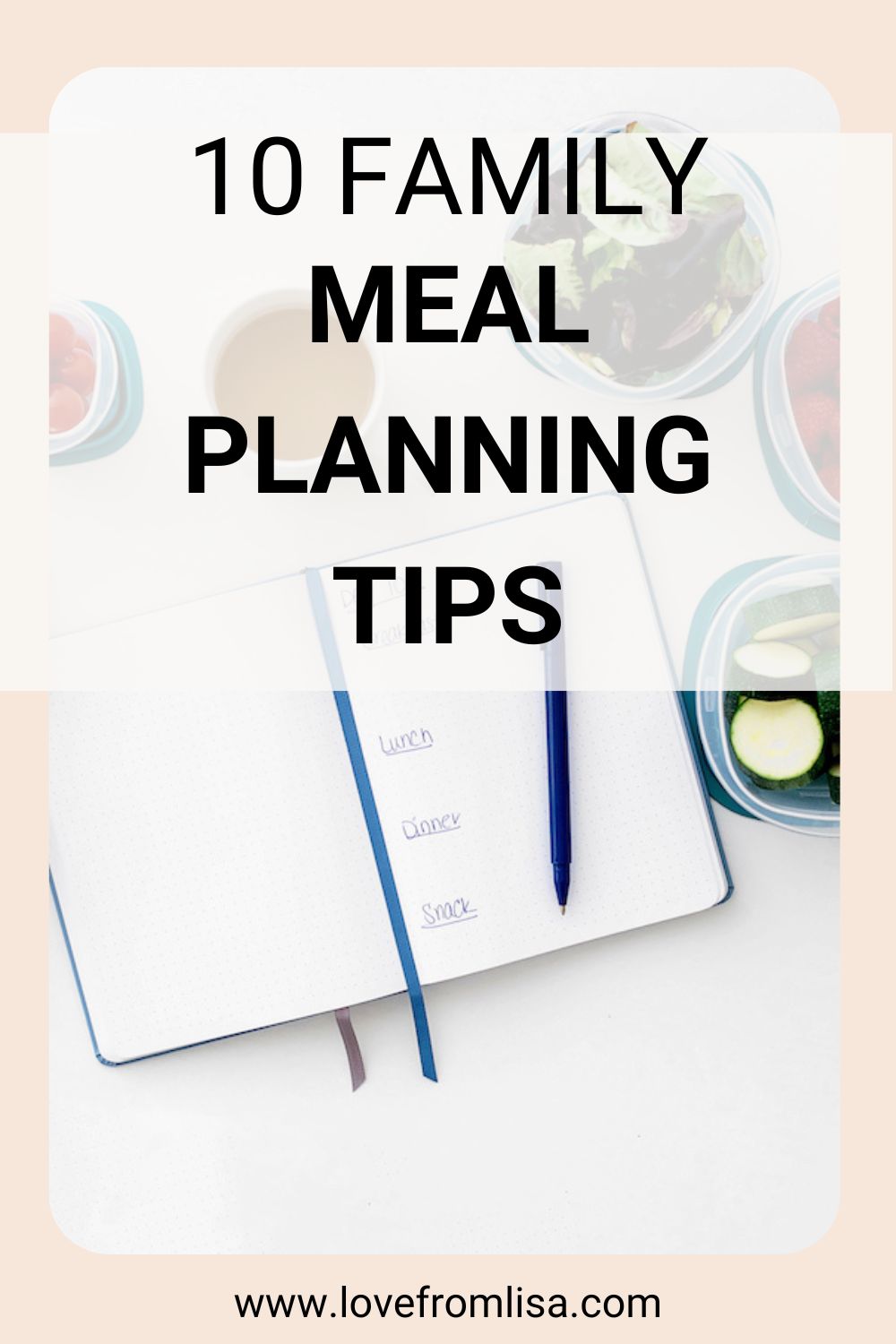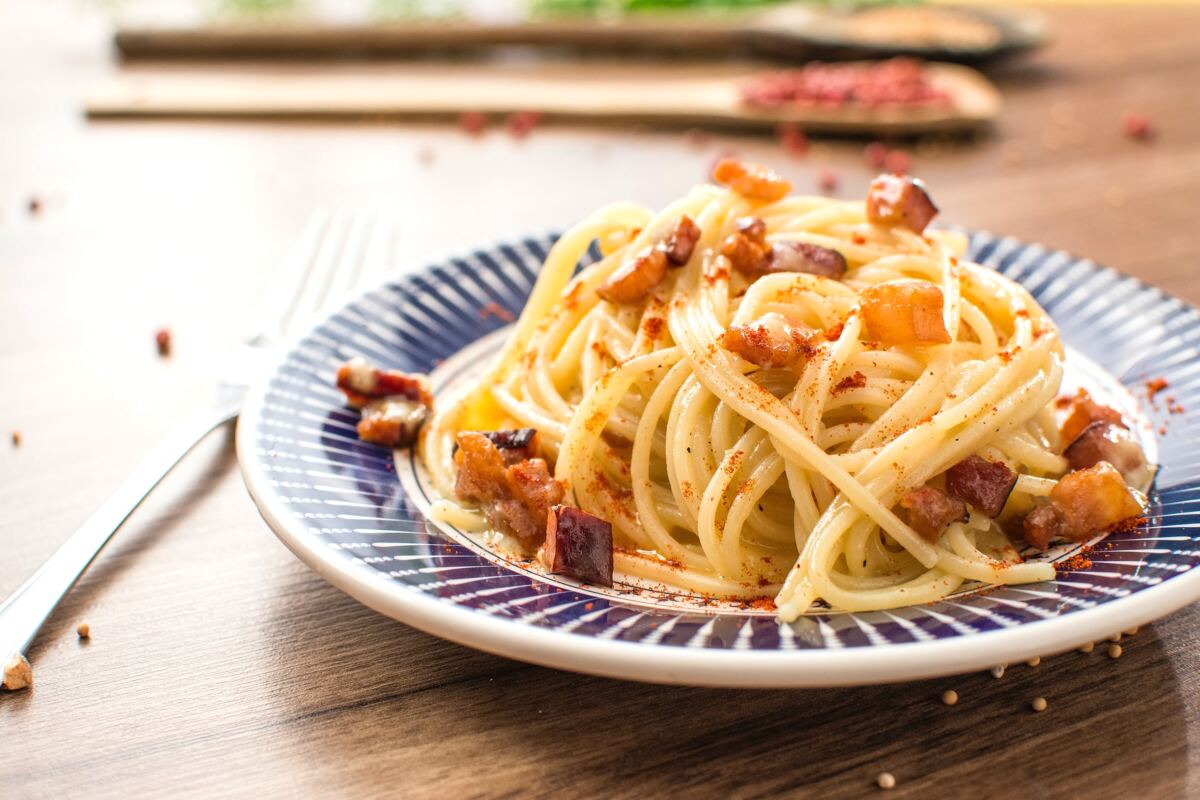10 family meal planning tips to make meal times easier
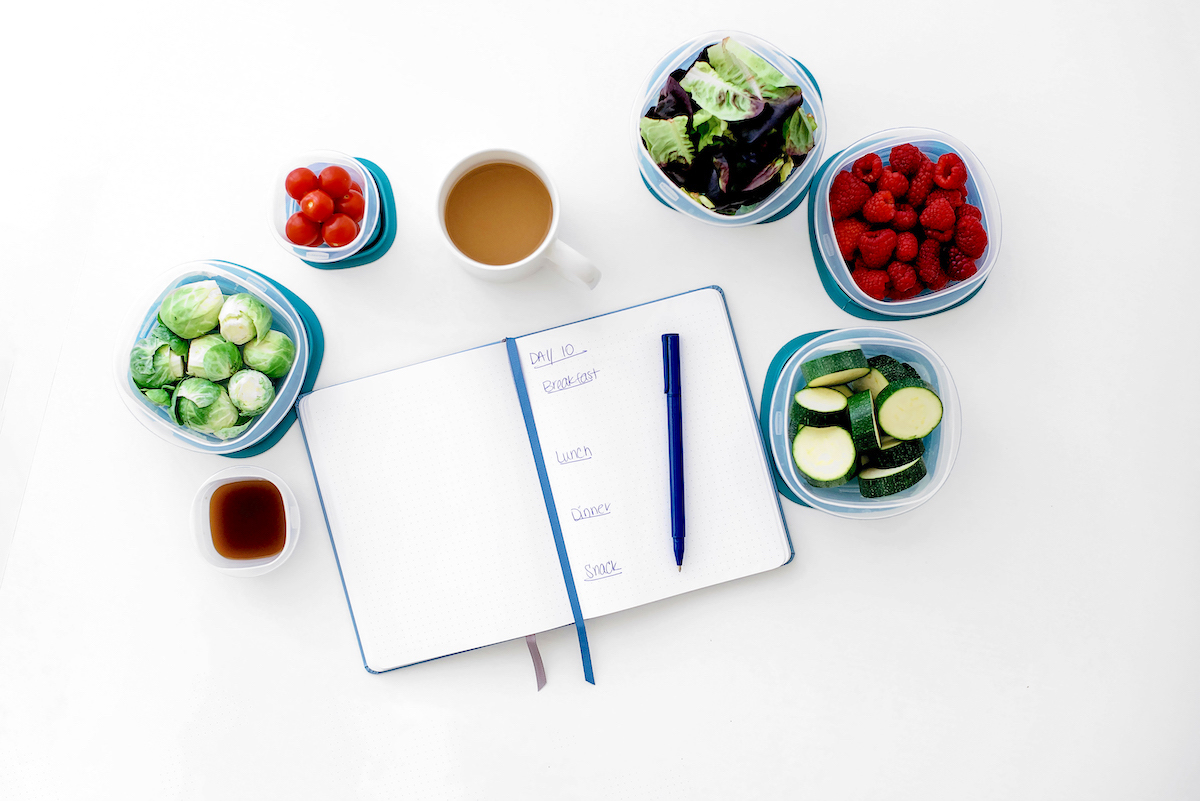
Family meal planning is something we know makes feeding our family easier, but it’s also something that can move down our list of priorities, due to the time and energy it takes.
Whilst it does take time and energy to do, starting a family meal plan is well worth it, because it takes a lot of time and stress out of meal preparation.
If you’re looking for some guidance on how to start family meal planning, here are 10 family meal planning tips that will help.
What’s a family meal plan?
A family meal plan is when you plan what your family’s going to eat, usually over the course of a week.
A family meal plan can be for every meal, or selected meals, and it can be for longer or shorter than a week, if that suits you better.
What are the benefits of meal planning?
Here are some benefits of meal planning:
- Saves time by not having to think about what to cook every night
- Saves money by cooking meals using ingredients you already have
- Allows you to eat healthier by not buying as many takeaways
- Reduces food wastage as you buy only what you need
- Helps you to eat a wider variety of food
Family meal planning tips
If you’d like to start meal planning for your family, here are some tips to make meal planning easier.
Create a favourite meals master list
A great first step to meal planning is to create a favourite meals master list.
This means making a list of all the meals your family loves, which will be the meals you put into your meal plan.
You can also categorise this master list to ensure you eat a variety of meal types during your meal planning period, for example:
- Chicken
- Meat
- Meat free
- Pasta
- Vegan
- 30 minute meals
- 60 minute meals
- Air fryer meals
- Crockpot meals
- Takeaway night
- Themed night (e.g. Taco Tuesdays, stir fry night, Italian night)
Creating a favourite meals master list saves you time because you won’t have to constantly find new meals to make, and you won’t spend time cooking meals your family ends up not enjoying, which is particularly helpful if you have a fussy eater.
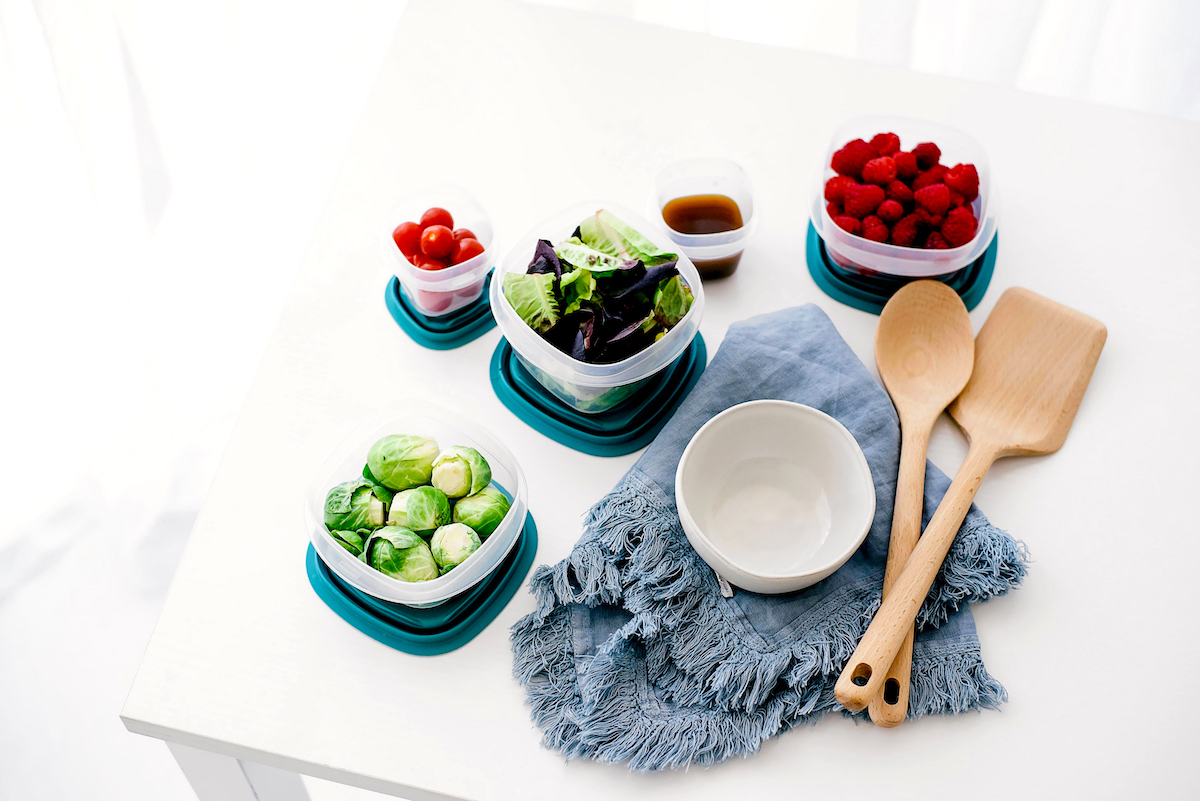
Create a meal ideas list
A meal ideas list is a list with meals on it that you’d like to try, and that if your family likes, will be added to your favourite meals master list.
There are many meal ideas online that you can add to this list, for example family meal planning for the week, or weekly meal plans, or ideas from family food blogs.
Decide on your meal planning frequency
Do you want to plan every meal of the day, or just dinner? Do you want to plan meals for a week, or just weekdays?
Thinking about the types of meals you want to meal plan for, and how long you want your meal plan to be for, helps you stay focussed when meal planning, and allows you to dedicate a proper amount of time to it.
If you’d like to meal plan for all meals, a good tip is to have the same breakfasts and lunches every week, but only change your dinners.
Schedule time to meal plan
A great way to make time to meal plan is by using time blocking to block out a chunk of time to get it done.
You could do this by blocking out time on weekends to meal plan for the week ahead, so you enter a new week more prepared.
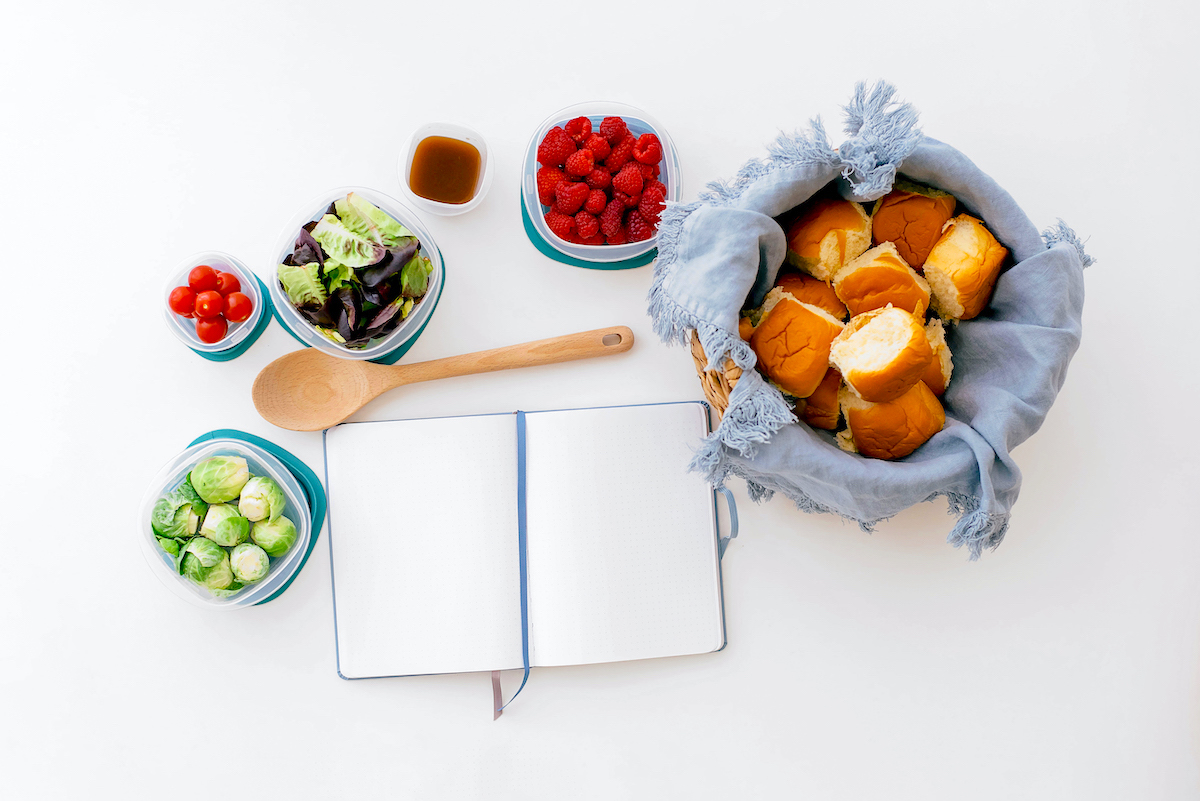
Write your meal plan down
Writing your meal plan down is a critical step in weekly meal planning for your family, because you need to see what meals you’ve planned, before you can make them.
I write my weekly family meal plan down in a Google Sheet, but you can also write your meal plan on a magnetic meal planner or whiteboard that you keep on your fridge, on a blackboard, or even in a meal planning journal.
Consider upcoming events
When you’re ready to write your weekly family meal plan, look at your calendar to see if you have any upcoming events that mean instead of planning a meal, you’ll eat out, or utilise leftovers.
Knowing when not to plan a meal will save you time and effort in your family meal planning efforts.
Cook bigger batches
Speaking of leftovers, a great way to increase the amount of leftovers you have is to cook larger batches of meals, so you can freeze extra amounts as leftovers.

Use what you have
Before writing your meal plan, look at what ingredients you have, and choose meals from your favourite meals master list, or meal ideas list, that uses them.
Doing this means you use your ingredients before they expire, and you’ll save money on groceries.
Plan non-cooking nights
This family meal planning tip is something I do, which is to have at least one night a week where you don’t cook, mine is every Friday, which is pizza night.
On these nights all I do is make a salad, then put a frozen pizza in the oven.
Be flexible
Often things come up that derail a meal plan. For example, an unplanned after school commitment could mean you get home too late to cook a meal you’ve planned.
When these things happen all you can do is be flexible, and move your meal to another day, not cook at all, or if you’ve already cooked a meal but won’t be able to have it, save it for another night, or freeze it for leftovers.
Give yourself a break
Sometimes you won’t have the energy to cook a meal you’ve planned, and that’s okay, we all need a break sometimes, otherwise we’ll reach mum burnout.
Don’t ever feel mum guilt about taking a break from meal planning; take a break whenever you need one, so you’re ready to start fresh again later on.
What are some of your family’s favourite meals?
